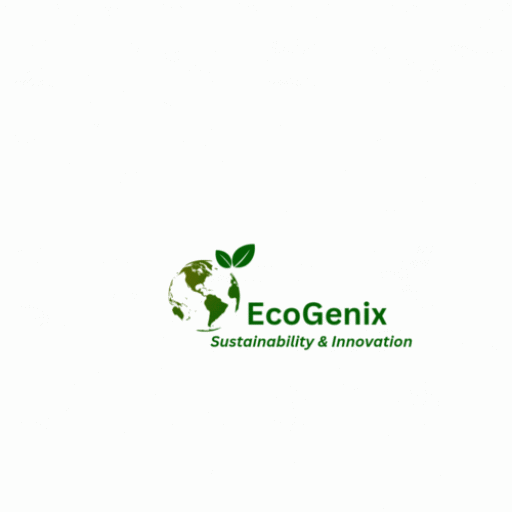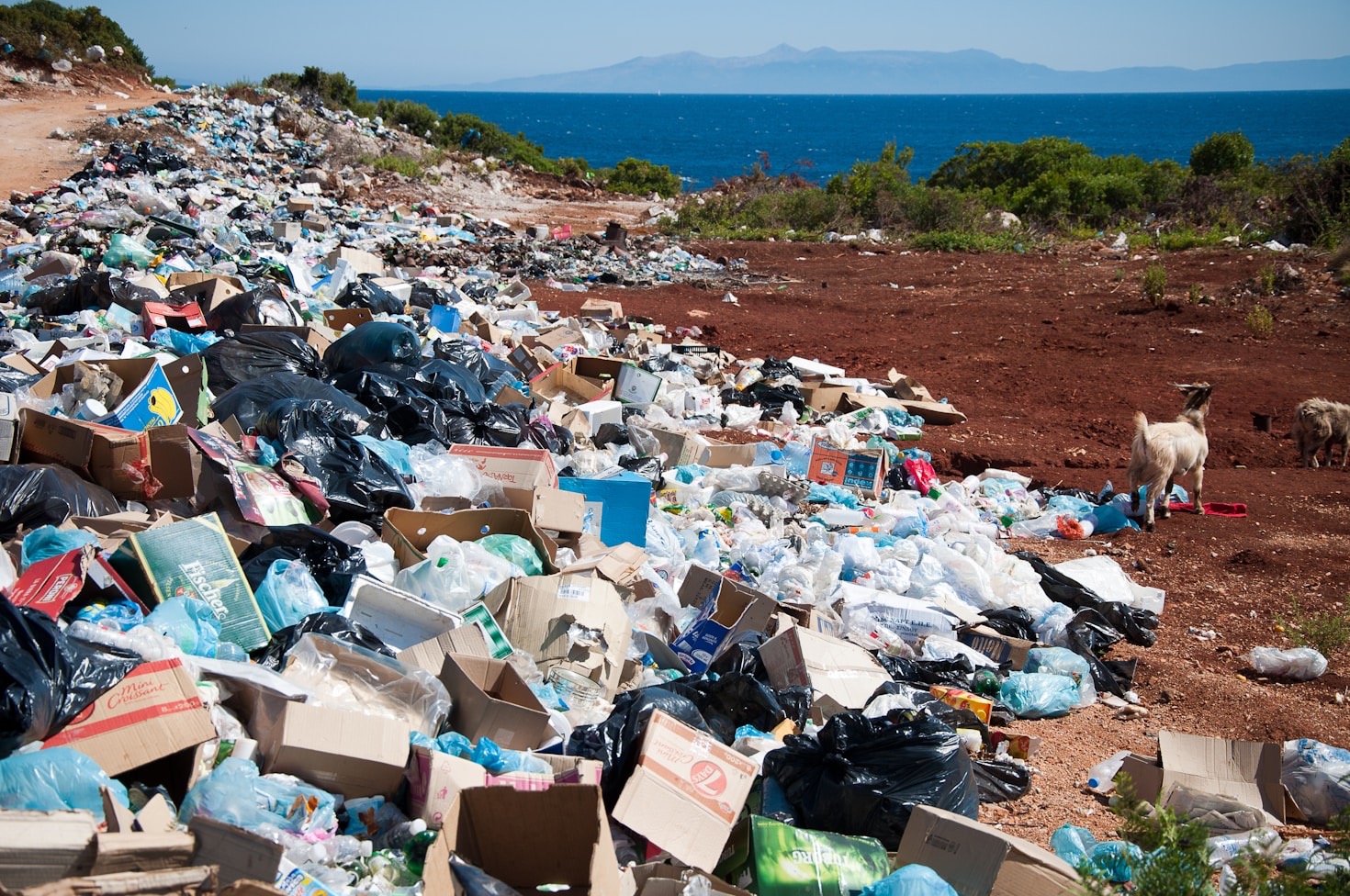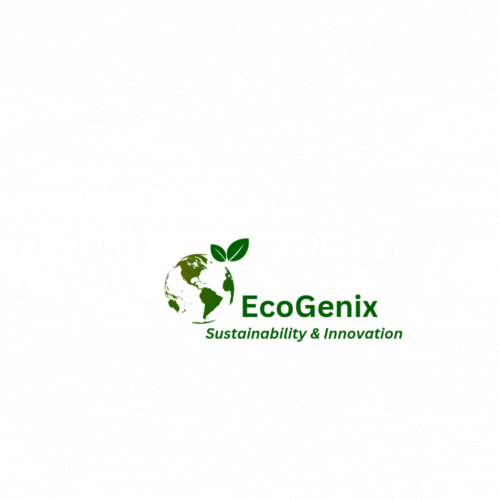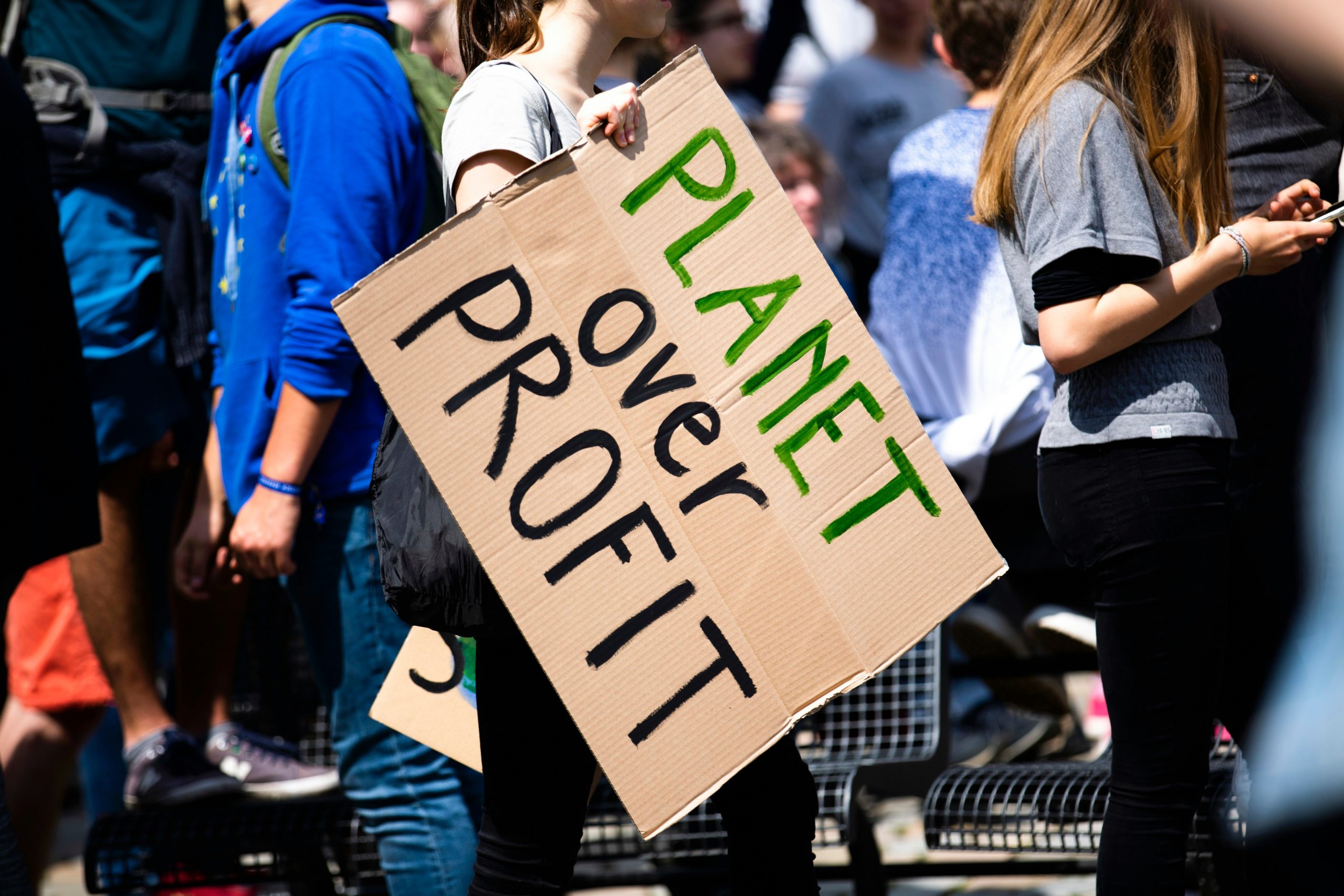-
Agriculture is at the heart of human survival, yet it faces mounting challenges—from climate change and resource scarcity to the need for sustainable food production that can feed a growing population. At this critical crossroads, EcoGenix is pioneering solutions that not only address these urgent issues but also reimagine what farming can look like in…
-
As climate change intensifies, communities around the world are being forced to adapt to unprecedented challenges—rising sea levels, extreme weather events, and shifting resource availability. While technology and grassroots action play a role, forward-thinking policies are often the catalyst that determines whether communities merely survive or truly thrive in the face of these disruptions. Policy…
-
Our health is deeply intertwined with the health of the environment, yet this connection is often overlooked in conversations about sustainability. From the air we breathe to the food we eat, sustainable practices play a critical role in shaping public health outcomes on both local and global scales. When communities adopt cleaner energy, reduce waste,…
-
As the effects of climate change become increasingly visible—rising temperatures, extreme weather events, and biodiversity loss—the urgency to promote sustainability has never been greater. The choices we make today, from energy use to consumption habits, will determine how resilient our planet and communities will be in the decades ahead. Yet, sustainability is not just about…
-
In a world where environmental challenges grow more urgent each day, knowledge has become one of the most powerful tools for change. Sustainability training equips individuals, organizations, and communities with the skills and mindset needed to make responsible choices that protect both people and the planet. From reducing carbon footprints in the workplace to adopting…
-
Food security is one of the most pressing issues of our time, affecting millions of people worldwide and shaping the health, stability, and resilience of entire communities. As climate change, economic instability, and population growth put increasing pressure on global food systems, the question is no longer just how to produce enough food, but how…
-
Agriculture has always been at the mercy of nature, but in today’s world, the stakes are higher than ever. With climate change bringing unpredictable weather patterns, prolonged droughts, and increased risks of pests and diseases, farmers face challenges that threaten global food security. Building climate resilience in agriculture is no longer optional—it is essential for…
-
Leading Change Through Innovation EcoGenix Group is redefining how businesses and communities approach sustainability. Instead of treating environmental responsibility as an afterthought, they place it at the heart of their mission. By focusing on smart, practical solutions, EcoGenix is helping industries reduce their carbon footprint while improving efficiency and growth. Building Sustainable Agriculture One of…
-
Introduction As the impacts of climate change intensify, a growing urgency to develop and implement innovative solutions has emerged. Technological advancements, sustainable practices, and creative approaches are essential in addressing the complex challenges posed by a changing climate. This article explores some of the groundbreaking innovations shaping the landscape of climate change solutions, from cutting-edge…
-
Introduction Climate change mitigation, the reduction or prevention of greenhouse gas emissions to limit the extent of global warming, requires effective policy and governance frameworks at local, national, and international levels. This article explores the critical role of policies and governance structures in driving climate change mitigation efforts, fostering sustainable practices, and facilitating the global…
-
Introduction The impacts of climate change are becoming increasingly evident, necessitating urgent and substantial efforts to transition to a low-carbon, resilient global economy. Climate finance and investment play pivotal roles in channeling funds towards sustainable initiatives, fostering innovation, and addressing the challenges posed by climate change. This article explores the significance of climate finance, key…
-
Introduction Forests are vital components of the Earth’s ecosystems, providing essential ecological services, supporting biodiversity, and acting as carbon sinks. However, unsustainable logging practices and deforestation pose significant threats to global forest ecosystems. This article explores the importance of sustainable forestry and afforestation as key strategies to conserve and restore forested landscapes, ensuring the health…
-
Introduction Coastal zones are dynamic and ecologically diverse regions where land meets the sea, supporting vibrant ecosystems and human communities. However, these areas are increasingly vulnerable to the impacts of climate change, including rising sea levels, extreme weather events, and coastal erosion. This article explores the significance of coastal zone management and adaptation as crucial…
-
Introduction As climate change continues to impact global weather patterns, agriculture, the backbone of our food systems, faces unprecedented challenges. Climate-smart agriculture and crop adaptation strategies have emerged as critical approaches to enhance the resilience of farming systems, ensuring food security and sustainability in the face of a changing climate. This article explores the importance…
-
Introduction In an era marked by environmental challenges and the imperative to reduce our carbon footprint, renewable energy and green technologies have emerged as cornerstones of a sustainable future. As we face the pressing need to transition away from fossil fuels and embrace cleaner alternatives, this article explores the significance of renewable energy sources and…
-
Introduction Sustainable land management and conservation are indispensable components of global efforts to address environmental degradation, biodiversity loss, and the far-reaching impacts of climate change. As human activities continue to exert pressure on the Earth’s ecosystems, adopting practices that promote sustainability and preserve natural resources has become an imperative. This article delves into the intricacies…
-
Introduction Climate change poses unprecedented challenges to our planet, affecting ecosystems, economies, and societies across the globe. As the impacts of climate change become increasingly evident, the need for robust adaptation strategies and resilience building has never been more urgent. This article explores the key components of climate change adaptation and highlights the importance of…
-
Introduction Climate change is a pressing global challenge that poses significant threats to ecosystems, societies, and economies worldwide. The Earth’s climate is undergoing unprecedented changes, largely driven by human activities that increase greenhouse gas emissions. To address this crisis, it is crucial to understand the complexities of climate change and its far-reaching impacts. This article…
-
Introduction: We are offering comprehensive modules that will impact your understanding of climate change. These modules are later explained in detail in the later articles. # Module 1: Understanding Climate Change and its Impacts Climate change is a global challenge that demands a comprehensive understanding to develop effective responses. Module 1 focuses on providing a…
-
As we navigate the complexities of sustainability in agriculture, the final module casts a spotlight on the transformative role of policies and advocacy. This exploration delves into the examination of both global and local policies, harnessing the power of advocacy to empower individuals to become catalysts for positive change in agricultural practices. By shaping policies…
-
Introduction In the pursuit of sustainability, agriculture is not just about cultivating crops but fostering a holistic ecosystem that encompasses social and economic dimensions. This module embarks on an exploration of the intricate tapestry woven by the social and economic aspects of agriculture, delving into issues of equity, fair labor practices, and community engagement. Beyond…
-
In the face of unprecedented challenges posed by climate change, agriculture stands at the forefront of vulnerability. The module embarks on a comprehensive exploration of climate-smart agriculture, a strategic approach that addresses the impacts of a changing climate on farming practices. The focus is on equipping farmers with the knowledge and tools to navigate these…
-
In the rapidly evolving landscape of agriculture, modern technology emerges as a powerful ally, holding the promise of revolutionizing traditional farming practices. The module embarks on an exploration of precision agriculture and technology integration, delving into the intricacies of techniques such as sensors, drones, and data analytics. The objective is clear: to enhance productivity while…
-
In the era of heightened awareness about health and environmental impact, organic farming has emerged as a beacon, aligning with the growing consumer demand for healthier and eco-friendly food options. The module embarks on a comprehensive exploration of organic farming practices, unraveling the intricate web of benefits associated with natural fertilizers, crop rotation, and pest…
-
In the quest for sustainable agriculture, agroforestry emerges as a pivotal and transformative approach. We have a module embarks on an exploration of the integration of trees and crops, unveiling the multifaceted benefits that such systems bring to the agricultural landscape. From enhancing biodiversity and improving soil structure to contributing to climate change mitigation, agroforestry…
-
In the realm of sustainable agriculture, agroecology stands as a beacon, advocating for the integration of biodiversity into farming systems. This article and the module embarks on a journey into the intricate tapestry of biodiversity and ecosystem services, unraveling the myriad benefits that diverse ecosystems bring to agricultural landscapes. From natural pest control and pollination…
-
Introduction In the face of escalating global water scarcity, the imperative for efficient water management in agriculture has never been more critical. This article together with the module focuses on the world of water management and conservation, unraveling the complexities of sustainable practices. As a beacon in the pursuit of responsible agriculture, the module delves…
-
Introduction In the complex web of sustainable agriculture, the role of healthy soil cannot be overstated. Often regarded as the unsung hero beneath our feet, soil is the very foundation upon which our food systems rely. This article explores the crucial techniques that not only enhance fertility but also pave the way for a sustainable…
-
Introduction The story of agriculture is as old as human civilization itself. It is a tale of innovation, adaptation, and the transformation of landscapes. As we stand on the precipice of a new agricultural era, it is essential to revisit the foundations of this vital practice to glean insights that can guide us towards a…
-
Introduction: We have turned our articles into comprehensive modules. Each module will be explained with a seperate article. Here is just a run down of whats in the modules. Agriculture, often regarded as the cradle of human civilization, has undergone significant transformations over the centuries. As we stand on the threshold of a new era,…
-
Introduction In today’s rapidly evolving world, the need for sustainable solutions has never been more critical. With climate change looming large and environmental resources depleting at an alarming rate, innovators across the globe are dedicating their efforts to finding sustainable solutions. These innovations not only address current challenges but also pave the way for a…
-
Introduction Sustainability, often seen through the lens of environmental conservation, is a multifaceted concept that encompasses not only ecological concerns but also social and cultural dimensions. The intricate interplay between societies, cultures, and sustainable development is crucial in shaping a harmonious future for our planet. This article delves into the social and cultural dimensions of…
-
Introduction In the face of climate change and environmental degradation, businesses worldwide are recognizing the urgency of adopting sustainable practices. Sustainable business practices are not just a trend; they are a necessity for companies aiming to thrive in the long run while contributing positively to the environment. This article delves into the importance of sustainable…
-
Introduction In the face of rapid urbanization and increasing environmental concerns, the need for sustainable transportation systems has never been more pressing. Traditional transportation methods, heavily reliant on fossil fuels, have contributed significantly to pollution and climate change. In response to these challenges, cities around the world are now embracing sustainable transportation solutions to create…
-
Introduction In an era defined by rapid urbanization, the need for sustainable urban planning and design has never been more critical. As our cities continue to expand at an unprecedented rate, finding innovative ways to accommodate growing populations while minimizing environmental impact has become a global imperative. Sustainable urban planning and design offer a holistic…
-
Introduction Waste management and recycling are critical components of building a sustainable future. As the global population continues to grow, so does the amount of waste generated. Proper waste management and recycling practices not only reduce the burden on landfills but also contribute significantly to conserving natural resources, reducing pollution, and mitigating climate change. In…
-
Introduction Water, the essence of life, is a finite resource essential for the survival of all living beings on our planet. With the world’s population steadily rising and climate change exacerbating water scarcity, sustainable water management has become paramount. This proactive approach ensures that water resources are conserved, utilized efficiently, and made available for future…
-
Introduction In an era where environmental concerns are at the forefront of global discussions, the need for sustainable energy and renewable resources has never been more critical. Fossil fuels, once the backbone of the world’s energy production, are not only finite but also major contributors to pollution and climate change. As we stand on the…
-
Introduction Environmental sustainability and conservation are fundamental principles that guide humanity’s efforts to protect the Earth’s natural resources and biodiversity. In recent decades, the importance of these concepts has gained significant recognition, as the world grapples with the challenges posed by climate change, deforestation, pollution, and loss of biodiversity. Understanding Environmental Sustainability: Environmental sustainability refers…
-
Introduction Sustainability and sustainable development are terms that have gained significant prominence in recent years, reflecting a growing global concern for the environment, social equity, and economic stability. As the world grapples with challenges like climate change, resource depletion, and social inequality, understanding the core concepts of sustainability and sustainable development has become crucial. This…
-
Introduction In today’s rapidly changing world, sustainability has become more than just a buzzword – it’s a way of life. As communities and industries grapple with the challenges of climate change and resource depletion, a deep understanding of sustainable practices is crucial. This article delves into ten essential modules that comprehensively cover the various facets…
-
Introduction Ensuring food security is one of the most pressing challenges of our time, particularly in the face of a growing global population and the threats posed by climate change. In recent years, innovative solutions have emerged to address these challenges, transforming the way we produce, distribute, and consume food. This article explores some of…
-
Introduction Urban food systems play a vital role in ensuring communities have access to nutritious and affordable food. However, in many urban areas, there are significant disparities in food access, leading to the emergence of food deserts. Food deserts are areas where residents have limited access to fresh, healthy, and affordable food options. This article…
-
Introduction Sustainable fisheries and aquaculture play a crucial role in providing a significant portion of the world’s protein supply and supporting the livelihoods of millions of people. However, the overexploitation of marine resources has raised concerns about the long-term viability of our oceans. This article explores the importance of sustainable practices in fisheries and aquaculture…
-
Introduction Livestock management and animal protein production play pivotal roles in global agriculture, providing essential resources for human sustenance, economic development, and overall food security. This article explores the intricate processes involved in livestock management and their significance in the production of animal protein. I. Importance of Livestock in Agriculture Livestock, including cattle, poultry, sheep,…
-
Introduction In an era defined by environmental challenges and a growing global population, the significance of sustainable agriculture and crop production cannot be overstated. As traditional farming practices strain our natural resources and contribute to climate change, the need for a paradigm shift towards sustainable methods has never been more urgent. This article delves into…
-
Introduction Food security is a fundamental human right, and it encompasses not only the availability and accessibility of food but also its nutritional value. Nutrition plays a crucial role in ensuring the overall health and well-being of individuals and communities. This article explores the intricate relationship between nutrition, health, and food security, highlighting the importance…
-
Introduction: Food safety and quality assurance are paramount in the food industry, ensuring that the products we consume are safe, nutritious, and of high quality. This article explores the key concepts and practices behind food safety and quality assurance, highlighting their significance in the modern food supply chain. **1. **Food Safety: Protecting Consumers’ Health Food…
-
Introduction Food distribution, access, and equity are critical components of a society’s overall well-being. This article explores the intricate web of factors influencing the way food is distributed, accessed, and its equity implications in communities around the world. I. Understanding Food Distribution Supply Chain Dynamics Discuss the complexities of the global food supply chain, including…
-
Introduction The global food system is a complex network involving the production, distribution, and consumption of food worldwide. Within this global framework, regional food systems play a crucial role in ensuring food security, sustainability, and economic development at the local level. This article explores the dynamics of both global and regional food systems, highlighting their…
-
Food Security: A Comprehensive Examination of its Dimensions and Challenges Introduction Food security, a term often bandied about in global discussions, encompasses far more than the simple availability of food. It encapsulates a complex interplay of factors that determine whether individuals and communities have access to safe, nutritious, and sufficient food to maintain a healthy…
-
Introduction: Food security, food safety, and food systems are interconnected aspects crucial for ensuring a healthy and sustainable future. In this article, we will delve into the key modules that explore these topics and discuss how they relate to one another. The following articles are just a snippet of our comprehensive modules. ENROLL FOR OUR…
-
Introduction The Sustainable Development Goals (SDGs) were adopted by the United Nations in 2015 as a universal call to action to end poverty, protect the planet, and ensure prosperity for all by 2030. SDG 17, often referred to as “Partnerships for the Goals,” recognizes the interconnected nature of the goals and the need for collaboration…
-
Introduction Sustainable Development Goal 16 (SDG 16) is a crucial pillar of the United Nations’ 2030 Agenda for Sustainable Development. It focuses on promoting peace, ensuring justice, and building strong institutions at local, national, and international levels. This goal recognizes that without peace, stability, and fair governance, the efforts to achieve other Sustainable Development Goals…
-
Introduction Sustainable Development Goal (SDG) 15, “Life on Land,” is a critical global initiative aimed at protecting, restoring, and promoting the sustainable use of terrestrial ecosystems. The goal recognizes the intrinsic value of Earth’s land-based ecosystems and the vital role they play in supporting life, biodiversity, and human well-being. This article delves into the importance…
-
Introduction The United Nations Sustainable Development Goal 14 (SDG 14) focuses on “Life Below Water,” aiming to conserve and sustainably use the oceans, seas, and marine resources for the benefit of present and future generations. With over 70% of the Earth’s surface covered by water and oceans playing a crucial role in regulating the planet’s…
-
Introduction: Sustainable Development Goal 13 (SDG 13), “Climate Action,” stands as a global commitment to addressing the urgent challenges posed by climate change. With its overarching objective of mitigating and adapting to climate change impacts, SDG 13 emphasizes the need for immediate and collaborative action to ensure a sustainable future for both present and future…
-
Introduction: Sustainable Development Goal (SDG) 12, “Responsible Consumption and Production,” is one of the 17 global goals adopted by the United Nations in 2015. This goal aims to ensure that we achieve sustainable patterns of consumption and production by promoting efficient resource use, reducing waste, and minimizing negative environmental and social impacts. SDG 12 is…
-
Introduction The United Nations Sustainable Development Goal 11 (SDG 11) aims to make cities and human settlements inclusive, safe, resilient, and sustainable. As the global population continues to urbanize, the need for sustainable urban development becomes paramount. SDG 11 addresses the challenges of rapid urbanization and its impact on the environment, society, and economy. The…
-
Introduction to SDG 10: Reduced Inequalities The Sustainable Development Goal 10 (SDG 10) aims to reduce inequalities within and among countries by addressing disparities in income, social status, access to resources, and opportunities. Inequalities in various forms, such as economic, social, gender, and educational, can impede progress towards sustainable development and hinder the achievement of…
-
Introduction Sustainable Development Goal 9 (SDG 9) is part of the United Nations’ 2030 Agenda for Sustainable Development, aiming to build resilient infrastructure, promote inclusive and sustainable industrialization, and foster innovation. This goal recognizes the critical role of industry and infrastructure in advancing economic growth, technological progress, and social development. By achieving SDG 9, we…
-
Introduction Sustainable Development Goal 8 (SDG 8) aims to promote sustained, inclusive, and sustainable economic growth, full and productive employment, and decent work for all. It recognizes that achieving economic growth is not sufficient; it must be inclusive and provide opportunities for everyone to participate and benefit from prosperity. SDG 8 is a crucial component…
-
Introduction: Sustainable Development Goal 7 (SDG 7) focuses on ensuring access to affordable, reliable, sustainable, and modern energy for all. It is crucial to address the challenge of affordable and clean energy as it plays a significant role in the overall development of societies, impacting climate change, food security, and other related SDGs. This article…
-
Introduction: Clean water and sanitation are fundamental human rights and critical components of sustainable development. Sustainable Development Goal 6 (SDG 6) aims to ensure the availability and sustainable management of water and sanitation for all. In this article, we will delve into the importance of SDG 6, the possible impacts if it is affected, and…
-
Introduction: Gender equality, as enshrined in Sustainable Development Goal 5 (SDG 5), is not only a fundamental human right but also a crucial factor for achieving sustainable development across various sectors. While often discussed in the context of social justice and empowerment, gender equality has far-reaching implications for environmental protection and education. This article explores…
-
Introduction: Sustainable Development Goal 4 (SDG 4) aims to ensure inclusive and equitable quality education for all individuals worldwide. Recognizing education’s transformative power, SDG 4 seeks to provide opportunities for lifelong learning, knowledge acquisition, and skill development. This article explores how SDG 4 can be achieved, its integration with other Sustainable Development Goals (SDGs), the…
-
Introduction: Sustainable Development Goal 3 (SDG 3), titled “Good Health and Well-Being,” aims to ensure healthy lives and promote well-being for all at all ages. It recognizes the importance of physical and mental health in achieving sustainable development. SDG 3 encompasses a broad range of targets related to reducing maternal and child mortality, combating communicable…
-
Introduction: The United Nations’ Sustainable Development Goal 2 (SDG 2) aims to end hunger, achieve food security, improve nutrition, and promote sustainable agriculture by 2030. However, the ongoing challenge of climate change poses significant threats to achieving this goal. Rising temperatures, erratic weather patterns, increased frequency of extreme weather events, and other climate-related factors directly…
-
Introduction: The United Nations Sustainable Development Goal 1 (SDG 1) aims to eradicate poverty in all its forms and dimensions by 2030. Poverty is a complex and multifaceted issue that requires a comprehensive approach, including sustainable practices, building resilience, and reversing the long-term impacts of hunger. This article explores the strategies and actions needed to…
-
Introduction: Climate change has become one of the most pressing global challenges of our time. It poses significant threats to the environment, human health, and socio-economic stability. As the world grapples with the consequences of rising temperatures and shifting weather patterns, it is crucial to shed light on the current issues surrounding climate change. This…
-
Introduction: As the global population continues to rise and climate change accelerates, ensuring food security has become an increasingly critical challenge. Climate change poses a significant threat to agricultural productivity, disrupting crop yields, increasing the frequency and intensity of extreme weather events, and altering growing conditions. Addressing the nexus of food security and climate change…
-
Introduction: Agricultural extension plays a pivotal role in promoting food security and sustainable agricultural practices. It serves as a vital link between agricultural research, technology, and farmers, facilitating knowledge transfer and capacity building. However, to meet the challenges of a rapidly changing world, agricultural extension approaches need to be enhanced and adapted to ensure long-term…
-
Introduction: Food security remains a global challenge, with millions of people around the world still suffering from hunger and malnutrition. Addressing this issue requires a comprehensive approach that includes enhancing food and agricultural policies. By implementing effective measures, governments can ensure sufficient and sustainable food production, improve access to nutritious food, and mitigate the risks…
-
Introduction: Post-harvesting practices play a crucial role in maintaining food security by minimizing losses and maximizing the availability of nutritious food. These practices encompass a range of activities that take place after crops are harvested, including handling, processing, storage, and transportation. By implementing effective post-harvesting strategies, we can significantly reduce food waste, ensure the quality…
-
Introduction: Street food vending is a vibrant and integral part of the culinary landscape in Malaysia and numerous cities worldwide. The enticing aromas, colorful displays, and affordable prices of street food have made it a popular choice for locals and tourists alike. However, beyond its cultural significance and gastronomic appeal, street food vending plays a…
-
Introduction: As the global population continues to surge, reaching an estimated 9.7 billion by 2050, ensuring food security becomes an increasingly pressing challenge. Compounded by the adverse effects of climate change, traditional agricultural practices face mounting difficulties in meeting the demands of a growing population. However, genetic engineering offers a promising avenue to revolutionize the…
-
Introduction Climate change is no longer a distant concern confined to scientific discussions and environmental debates. It has become an alarming reality that poses a significant threat to public health, particularly in the context of heat-related illnesses. Rising global temperatures, extreme heatwaves, and changing weather patterns have dire consequences for human well-being, placing vulnerable populations…
-
Introduction Climate change poses significant challenges to the agricultural sector, impacting crop yields, water availability, and overall food security. However, by implementing adaptation strategies and building resilience, farmers can navigate these challenges and ensure sustainable agricultural practices. In this article, we explore the importance of climate change adaptation in agriculture and highlight key approaches to…
-
QUOTE: Addressing the interconnected challenges of food security, sustainability, agriculture, climate change mitigation, and public health requires a collaborative and innovative approach to create a resilient and equitable future for all.” – Wayne Tota INTRODUCTION Malaysia, a country known for its tropical climate, is currently grappling with a severe heat wave that poses multifaceted challenges…
-
INTRODUCTION As we commemorate World Food Safety Day, it is crucial to recognize that food security and food safety are two intertwined pillars of global…









